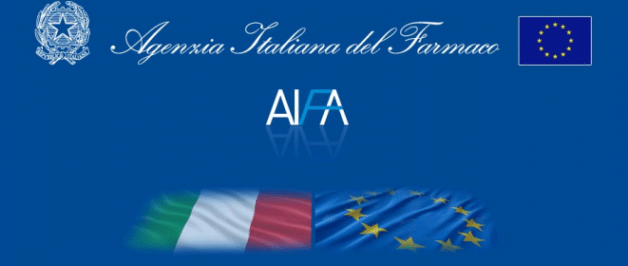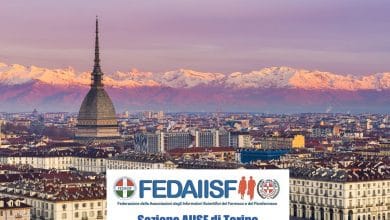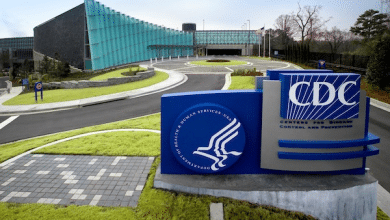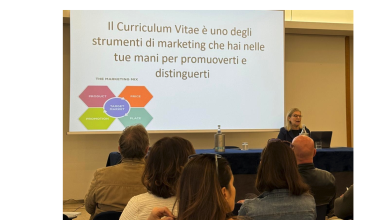
The Technical Secretariat of the AIFA General Management, having examined the minutes, believes that the content of the same reports the outcome of the meeting Open AIFA 25 September 2014 (2) . However, it is clarified that neither the outcome of the meeting nor the approval of the content of the minutes gives rise to any obligation towards the Agency or its bodies.
AIFA-FEDAIISF meeting minutes
September 25, 2013
FEDAIISF takes the floor through its president Fabio Carinci, who thanks Prof. Luke Pani due to availability of the meeting and opens the interview with the brief reflection that, in the pharmaceutical world, not many things have changed compared to the previous meeting which took place last year: at least as far as Pharmaceutical Representatives are concerned.
There are still confused modus operandi in the relationship with pharmaceutical companies, where it is not known what the precise rules are.
The ISFs, FEDAIISF continues, instead have precise rules: these are clear rules deriving from provisions of the law of the State, as confirmed and certified at the time, also by the Directorate General of the Ministry of Health and by a previous Director General of AIFA.
Repeated signals interpret the ISF as a cost to be reduced: they can be deduced from conferences, sector studies, contributions from specialized agencies and repeated professional interventions.
This specious disorientation has contributed, in some way, to justifying over 13,000 layoffs in recent years alone and, perhaps, even more.
One wonders why it is not possible to stem this haemorrhage in a sector which, according to ISTAT data, appears to be in good health.
AIFA recalls that the topic had also been raised the previous year and invites FEDAIISF to report precise facts and events, to those within its competence and specifically directly to the Public Prosecutor's Office for any criminally relevant assessments, AIFA also offers to involve the NAS in real time, highlighting that several investigations have already been generated by Open AIFA.
FEDAIISF introduces another important topic: mobility requests.
AIFA argues that the requests for mobility by pharmaceutical companies should be susceptible to greater attention and controls at a political level; a reflection that FEDAIISF agrees with, asking which tools, even extraordinary ones, can better verify the legitimacy of these requests.
AIFA, in this regard, suggests also in this case to contact the Public Prosecutor's Office.
AIFA also communicates that it has sent a note regarding the increase in some Regions of reports of suspected adverse reactions attributed to equivalent and biosimilar drugs and points out that he has concerns relating to the fact that all this happens in those Regions in which the doctor can prescribe a designer drug only in cases of non-tolerability to the equivalent drug and on condition that the patient brings to the private pharmacy a certificate that the prescriber has sent an adverse drug reaction form to your healthcare company.
Obviously, these analyses, as highlighted by AIFA, raise questions about the professionalism of all the actors involved.
FEDAIISF invited AIFA to another reflection: the one that sees greater attention from doctors to reports of adverse reactions, which may have, perhaps as a trigger, not only the limitations on the professionalism of the doctor himself, but also the greater sensitivity and propensity of young doctors who are increasing more and more.
FEDAIISF also recalls that, in the previous meeting in 2013, where it had raised doubts regarding the therapeutic overlap of generic drugs, AIFA had communicated that there had been few reports of adverse reactions. ( FEDAIISF, on that occasion, had communicated that it would continue to collaborate in enforcing the legislation in force, renewing to its members and sympathizers the invitation addressed to local doctors, to monitor drugs, and report the adverse events of which they were aware. ed.).
On this reflection, AIFA points out that in terms of collaboration it would be useful for drug sales representatives to adhere to projects that also provide for their geo-location, noting, however, that the ISFs themselves refuse it and thus raising the suspicion of possible unclear situations.
AIFA considers geo-location an indispensable factor for control, and invites FEDAIISF to think and propose common solutions and actions.
FEDAIISF requests to know the terms of the proposal in written form, and to have time to report and involve the National Executive. (Since the clarifications on geo-location were received after the meeting, in the drafting phase of these minutes it will be FEDAIISF's responsibility to examine them carefully and make them the subject of separate reflection. ed).
AIFA agrees to the sending of clarifications and asks to be informed of any decisions that the Federation, which involves thousands of scientific representatives, will take on the matter.
The Federation of Pharmaceutical Representatives' Associations also raises a deeply felt issue by colleagues from all over Italy: informants do not believe that the usual professional duties, dictated by the pharmaceutical industry, fall within the spirit, substance and form of the tasks established by the legislator.
FEDAIISF, therefore, proposes some questions in writing to AIFA so that it can explain its position on the matter.
Two letters are then delivered (prot.U.67/14/FC of 09/23/2014 and prot.U 66/14/FC of 09/22/2014), the first contains the following questions:
1) Is it legitimate for companies to ask their GPs for average visits, frequency of visits, coverage of the territories, target doctors also based on seniority, adherence to innovation and prescribing potential?
All this, also with national, regional and provincial analytical data with relative micro-areas.
2) Other professional figures (area heads, local doctors) can carry out scientific information activities, in particular for drugs with MA, since they are not included in the lists, which companies submit to AIFA every year and in which the number of employed ISFs is declared?
3) What role does AIFA foresee for the area heads? Is it lawful and legitimate to support the ISF, also and above all in the absence of regional regulations, which govern their activity?
All the regions, which have adopted a scientific information regulation, in fact, prohibit the coaching of area managers, considering them - in fact - unsuitable, useless, irrelevant and harmful to the decorum and professional dignity of the ISF - limited to the modalities of implementation.
4) Has AIFA ever verified, even through an audit, the real dependence of the ISF on the scientific service?
5) Shouldn't pharmaceutical companies maintain a line of scientific information on basic medicine, even on expired patent products, in relation to a scientific update and the drug surveillance service?
The second letter concerns the request for AIFA's position regarding the "illicit innovation contained in the latest National Collective Labor Agreement of the Chemical Industry..."
Prof. Pani acquires the documentation and communicates that everything that has been filed will be sent to the NAS for the follow-up.
Finally, the Federation of Pharmaceutical Sales Representatives' Associations delivers to AIIFA two copies of the FEDAIISF 2015 booking diary which describes the booking and reception rules by the General Practitioner, and the Rules of the FEDAIISF Code of Ethics.
Code of Conduct, which, printed in each Agenda, has the purpose of recalling the obligations and duties of each ISF in the context of their work activities. The various points of the federal regulations include:
• the general rules for the ISF on scientific information;
• the rules of conduct towards the doctor;
• the rules relating to the management of information material and free samples of medicinal products;
• the rules relating to clinical trials, congresses and scientific meetings (ECM);
• rules of conduct among FSIs;
• rules of conduct vis-à-vis companies and control over observance of the code of ethics itself.
FEDAIISF underlines the goal of seriousness and professionalism that it has always set itself in compliance with the Italian Constitution and national and regional laws that regulate such an important and delicate sector as scientific information on drugs.
AIFA appreciates the tool made available to doctors and ISF.
Finally, Fabio Carinci thanks Prof. Luca Pani, and his staff, for the sincere attention given to the FEDAIISF Delegation.
———————————————————————————————————————————————————————————-
FEDAISF Federation of Italian Associations of Pharmaceutical Representatives
President
ProtU67/FC/14
Rome, 23 September 2014
egr. Prof. Luke Pani
AIFA General Manager
Italian Medicines Agency – ROME
Object: sentence of the Court of Cassation 19394/2014 15/09/2014 – ISF is not a commercial agent
– Prof. Nello Martini, former AIFA General Manager, considered the scientific information activity on the drug not dependent on the Commercial Management, but on the Medical Management of the same Companies (prot. N.800.1/IS/9573 of 19 August 2002) ;
-all the articles relating to pharmaceutical information contained in Legislative Decree 219/06 tend to this statement, and AIFA is the supervisory body so that all this takes place in full compliance with the law;
– in the light of the recent sentence of the Court of Cassation 19394/2014 15/09/2014 which establishes that the scientific representative of the drug is not a commercial agent, we ask you:
1) Is it legitimate for companies to ask their ISFs to have average visits, frequency and coverage of the territories, to target doctors for a higher (or lower) frequency of visits according to their prescriptive capacity?
2) Other professional figures (area managers and local doctors) can carry out scientific information activities, in particular for drugs with MA, since they are not included in the lists that companies submit to AIFA (by January of the following year ) which declares the number of informants employed, in the previous year, for scientific information?
3) What role does AIFA foresee for the area heads? Is support to the ISF lawful, even in the absence of regional regulations governing its activity? In fact, all the regions that have adopted a scientific information regulation explicitly forbid the assistance of the Area Managers to the ISF”.
4) Is it legitimate to use the ISF for market surveys in order to detect the prescribing potential of doctors and/or hospital departments to optimize promotional actions?
5) Has AIFA ever verified, even through an audit in Pharmaceutical Companies, the real dependence of the ISF on the Scientific Service? Paying attention not to be deceived by the dependence deriving from organizational reasons of the company personnel.
6) Should Pharmaceutical Companies keep a line of information on basic medicine, even on expired patent products, in relation to a scientific update and the pharmacovigilance service?
Waiting for a kind reply, I send you my best regards.
Fabio Carinci
FEDAIISF President
———————————————————————————————————————————————————————————-
FEDAISF Federation of Italian Associations of Pharmaceutical Representatives
President
ProtU66/FC/14
Rome, 22 September 2014
egr. Prof. Luke Pani
AIFA General Manager
Italian Medicines Agency – ROME
Object: art. 119, paragraph 6, Legislative Decree 219/06
Given that, as provided for by article 48, paragraph 2 of law 326/03: “without prejudice that the drug represents a means of health protection, the Italian Medicines Agency was established with effect from 1 January 2004", "the same (paragraph 3) is responsible for tasks in the field of medicines policies (also) with reference to scientific information" and that Legislative Decree Legislative Decree 219/06, in article 122, paragraph 6, establishes that the scientific reps depend on the Scientific Service of the Company and that (Article 126, paragraph 1) "The Scientific Service must be independent from the Marketing Service of the pharmaceutical company"
you ask to know
what is the Agency's position regarding the illegal innovation contained in the latter National Collective Bargaining Agreement for the Chemical Industry, signed in 2012, in the part in which the classification of scientific representatives in the Commercial/Sales Area is envisaged, in defiance of the aforementioned articles of Legislative Decree 219/06,
and if the same Agency deems applicable
to defaulting companies, the penalties provided for by art. 119, paragraph 6, of the aforementioned Legislative Decree 219/06 which states: "If the promotional information to healthcare professionals is carried out in violation of the provisions and criteria and directives adopted by AIFA pursuant to paragraph 2, the 'Agency itself orders the immediate cessation or suspension of promotional information";
also according to the clarifications already provided by the Ministry of Health (19/8/2002 n.15): "the informant can only depend on the figure of the scientific manager";
and another, given in response to a parliamentary question (4/16726 On. Maceratini. 7/12/1993):
"Such an obligation, which entails the onset of a specific legal liability "in surveillance" by the same legal representatives of pharmaceutical companies, even in the event of non-compliance with the law on the matter, in any case attributable to their fault, could a fortiori make it configurable against them a case of "continued infringement" (and as such of greater gravity with respect to the possible purposes of article 14 [*], paragraph 1 of Legislative Decree 541/92) when the usual organization of the Scientific Service according to criteria which are in themselves incompatible with the constraints imposed on information on drugs is proven, by contradiction.
[*] Subsequently replaced by Article 126 of Legislative Decree 219/06 (ed)Attachment 1: Text of the cited articles, Annex 2: Ministerial responses
While waiting to hear AIFA's position on the questions raised, I send you my best regards.
Fabio Carinci
FEDAIISF President
______________________________________________________________________________________
Attachment 1
Text of the cited articles
Law 326/03, Article 48
2. It being understood that drugs represent a health protection tool and that drugs are supplied by the National Health Service as they are included in the essential levels of assistance, in order to ensure the unity of pharmaceutical activities and to encourage Italy investments in research and development, the Italian Medicines Agency, hereinafter referred to as the Agency, was established with effect from 1 January 2004, subject to the guidance functions of the Ministry of Health and the supervision of the Ministry of Health and the Ministry of the economy and finances.
3. The Agency has legal personality under public law and organisational, patrimonial, financial and managerial autonomy. In addition to the tasks referred to in paragraph 5, the same is responsible for tasks and functions of high technical consultancy to the Government and to the Permanent Conference for relations between the State, the regions and the autonomous provinces, in the matter of drug policies with reference research, investment by companies in research and development, production, distribution, scientific information, regulation of promotion, prescription, monitoring of consumption, surveillance of adverse effects, reimbursement and prices.
Article 122, paragraph 6. Scientific representatives must report to the scientific service referred to in article 126, on which they depend, and to the head of the pharmacovigilance service referred to in paragraph 4 of article 130, all information on the undesirable effects of medicines, attaching, where possible, a copy of the reporting forms used by the doctor in accordance with title IX.
Article 126, paragraph 1. Every company that holds a marketing authorization for medicinal products must have a scientific service in charge of providing information on the medicinal products it places on the market. The service is directed by a graduate in possession of a degree in medicine and surgery or in pharmacy or in pharmaceutical chemistry and technology pursuant to the law of 19 November 1990, n. 341, or in possession of a specialist or master's degree belonging to the specialist or master's degree classes to which the scientific-disciplinary sectors of the above-mentioned degree diplomas refer, medicine and surgery, pharmacy, chemistry and pharmaceutical technology. The scientific service must be independent from the marketing service of the pharmaceutical company.
Art 119, paragraph 6. If the promotional information to healthcare professionals is carried out in violation of the provisions and criteria and directives adopted by AIFA pursuant to paragraph 2, the Agency itself:
to) orders the immediate termination or suspension of promotional information;
b) orders the dissemination, at the offender's expense, of a correction and clarification press release, the drafting of which will be handled according to the methods established by AIFA. This press release may be inserted by AIFA in the Bulletin of information on drugs and on the institutional website of the same and, by and at the expense of the Company, on the latter's website or even in national newspapers.
Attachment 2
Ministerial responses





